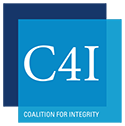Donald Trump’s Conflicts Of Interest Are A Swamp Unto Themselves (Huffington Post)
November 14, 2016With business holdings that span the globe, President-elect Donald Trump will take office next year with unprecedented conflicts of interest, both real and perceived. Thus far, he has done almost nothing to address this issue.
“Democracy is best served when elected officials are wholly committed to advancing public interest,” said Shruti Shah, vice president for programs and operations at the U.S. branch of Transparency International, a global anti-corruption organization.
“It is important to avoid both actual and perceived conflicts of interest,” Shah said. “This is a non-partisan principle.” Read more
LePage promised transparency, but multimillion-dollar contract awards remain in the shadows (Bangor Daily News)
October 18, 2016Each year, Maine state government uses millions of taxpayer dollars to purchase thousands of goods and services from outside organizations. The conversation about contracting transparency is relevant now because the LePage administration has switched up longstanding contracts and outsourced existing government services, often without extensive explanation.
“Contract publication can help journalists and citizen watchdog groups to monitor decisions and ensure that decision makers are held accountable,” said Shruti Shah, vice president of programs and operations for the advocacy group Transparency International-USA. Read more
NYC’s dirty money files (The Real Deal: New York Real Estate News)
October 3, 2016Illicit money is increasingly being stashed in U.S. commercial real estate. In 2006, the U.S. Department of Treasury’s Financial Crimes Enforcement Network (FinCEN) identified 9,528 suspicious commercial real estate transactions in the U.S. in a 10-year period starting in 1996.
“Many of the larger real estate companies will say, ‘Well, we don’t do any cash transactions, and the big banks are doing the due diligence, so we don’t have any obligation,’ ” said Shruti Shah, a vice president at anticorruption nonprofit Transparency International-USA. “But for any anti-money-laundering system to function well in any country, you need multiple checks and balances. It’s not enough that financial institutions are required to do due diligence. Read more
With Kleptocrats Untouchable, America Goes Big on Another Strategy: Taking Their Stuff Instead (OCCRP)
September 22, 2016Increasing US attention to kleptocracy cases has galvanized other governments. In the 1MDB case, Singapore and Switzerland – both countries with a history of financial secrecy – appear to have worked closely with the US, freezing millions believed to be linked to the scam.
Shruti Shah, vice president of programs and operations at Transparency International in the US, notes the US still offers many dark channels allowing dirty money to move unseen. While it “would be even better… to prevent these assets from being stolen (in the first place),” she said, “we need to do something about intermediaries – bankers, lawyers and the real estate industry.” Read more
Will Congress Get Serious About U.S. Offshoring Loopholes? (Foreign Policy)
September 1, 2016The new Treasury rule requires banks to do yet more due diligence to unmask a company’s true owner at the time an account is set up. Banks will now be required to collect and verify the names of any person who owns more than 25 percent of a corporate entity, along with the identity of one “individual who controls” it.
Critics argue the measure doesn’t go far enough because it doesn’t address existing bank accounts. Shruti Shah, the vice president of programs and operations for the U.S. branch of Transparency International, a global anti-corruption organization, argues that it also conflates the definition of ownership with management. “If nothing, what the Panama Papers proved is that some of these people are mere figureheads,” she said. Read more
Shah & Currinder – Is It a Gift or Is it A Bribe (Huffington Post Blog)
August 24, 2016In its McDonnell v. United States decision, a unanimous Supreme Court affirmed states’ right to regulate ” permissible scope of interactions between state officials and their constituents.” It is not the federal government’s role, according to the Court, to set standards of “good government for local and state officials.”
Gift rules that are riddled with loopholes and exceptions contribute to the perception—and sometimes the reality—of corruption. Whenever individuals, businesses, and organizations give gifts to elected officials, we should ask why. Read more
Shah and Grant: How to steal billions
July 22, 2016We need to take active steps to close the obvious loopholes in the U.S. legal framework and compliance practices, and shore up the international financial system that has allowed brazen money laundering to happen. Read more
TI-USA on BBC Newsday
July 20, 2016TI-USA VP Shruti Shah was on the BBC Newsday on July 20, 2016 with Rico Hizon (Singapore correspondent) talking about the significance of the U.S action with regard to 1MDB and the loopholes in the U.S framework which allow dirty money to come into the U.S
Shah and Currinder: A leader with integrity wouldn’t accept $175,000 in gifts (FCPA Blog)
July 14, 2016In a unanimous decision, the Supreme Court vacated former Virginia Governor Bob McDonnell’s eleven corruption convictions. The jury that convicted McDonnell was given erroneous instructions, according to the Court. At issue was the question of what constitutes an “official act.” Read more
Co-Written by: Shruti Shah, Vice President, Programs and Operations, TI-USA
Corruption: Moving money out of purgatory (The Financial Times)
July 5, 2016It is difficult enough for law enforcement agencies to successfully bring international graft cases and seize stolen assets. But it is proving just as difficult to return the money to the citizens without it landing back in the hands of the thieves. “When you think about the money that’s stolen it’s like an inverted pyramid,” says Shruti Shah, vice-president of programmes and operations at Transparency International USA. “The top is the money that’s stolen. A smaller percentage is frozen and a minuscule percentage is actually returned. Read more

